|
Books Should Be Free Loyal Books Free Public Domain Audiobooks & eBook Downloads |
|
|
Books Should Be Free Loyal Books Free Public Domain Audiobooks & eBook Downloads |
|
Non-fiction |
|---|
|
Book type:
Sort by:
View by:
|
By: Hugo Münsterberg (1863-1916) | |
|---|---|
 Psychotherapy
Psychotherapy
Talking about viewing the Ocean "If I take the attitude of appreciation, it would be absurd to say that this wave is composed of chemical elements which I do not see; and if I take the attitude of physical explanation, it would be equally absurd to deny that such elements are all of which the wave is made. From the one standpoint, the ocean is really excited; from the other standpoint, the molecules are moving according to the laws of hydrodynamics. If I want to understand the meaning of this scene every reminiscence of physics will lead me astray; if I want to calculate the movement of my boat, physics alone can help me".(from the Introduction) | |
By: George Washington Cable (1844-1925) | |
|---|---|
 The Amateur Garden
The Amateur Garden
| |
By: George Sutherland (1855-1905) | |
|---|---|
 Twentieth Century Inventions: A Forecast
Twentieth Century Inventions: A Forecast
This work from 1901 predicts what technological developments will manifest in the twentieth century. The author, a technical journalist, presents ideas for inventions and new developments in the areas of power, transportation, agriculture, mining, domestic applications, electronic devices, warfare, music, art, and news. Many have come to pass. All of them provide an interesting look into how the next century was imagined and what challenges were anticipated for the progress of society. - | |
By: Philip Stanhope, 4th Earl of Chesterfield | |
|---|---|
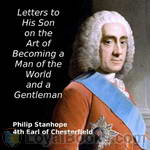 Letters to His Son on the Art of Becoming a Man of the World and a Gentleman
Letters to His Son on the Art of Becoming a Man of the World and a Gentleman
Philip Stanhope, Earl of Chesterfield, was at one time Ambassador to the Hague, negotiated the second Treaty of Vienna, was a founding governor of London’s Foundling Hospital, Lord-Lieutenant of Ireland, and Secretary of State. Having no legitimate children, his heir was his third cousin (another Philip) whom he adopted. Although known as a hard, calculating man, he is most well known for his letters to his natural son (i.e., illegitimate son) (also called Philip). When Philip died in 1768, the letters are addressed to his grandchildren (Philip’s two sons, Charles, and, yes, Philip!)... | |
By: William Cobbett (1763-1835) | |
|---|---|
 Cottage Economy
Cottage Economy
How can you tell when your pig is fat enough? Why should you never buy mustard? What's wrong with eating potatoes? Which is better, beer or tea? And what type of straw makes the best bonnets? William Cobbett is the man to ask. Here is his book of practical advice to the rural labouring 'cottager' (first published as a part-work in 1821-22), the precursor in many ways to the handbooks on self-sufficiency that today entice so many city-dwellers. A champion of the rural working class at a time of huge... | |
By: Cleveland Moffett (1863-1926) | |
|---|---|
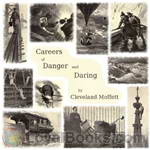 Careers of Danger and Daring
Careers of Danger and Daring
In this volume of adventure the author depicts the lives of certain humble modern heroes whose unconscious courage ordinarily goes unnoticed. Mr. Moffett has chosen unusual and picturesque careers, and has offered dramatic scenes from the lives of the steeple climber, the diver, the balloonist,the pilot, the bridge builder, the fireman, the aerial acrobat, the wild animal trainer, the dynamite worker and lastly the locomotive driver. | |
By: Kate Heintz Watson | |
|---|---|
 Textiles and Clothing
Textiles and Clothing
| |
By: Alice Morse Earle (1851-1911) | |
|---|---|
 Home Life in Colonial Days
Home Life in Colonial Days
CHAPTER I HOMES OF THE COLONISTS When the first settlers landed on American shores, the difficulties in finding or making shelter must have seemed ironical as well as almost unbearable. The colonists found a land magnificent with forest trees of every size and variety, but they had no sawmills, and few saws to cut boards; there was plenty of clay and ample limestone on every side, yet they could have no brick and no mortar; grand boulders of granite and rock were everywhere, yet there was not a single facility for cutting, drawing, or using stone... | |
By: Johanna Brandt (1876-1964) | |
|---|---|
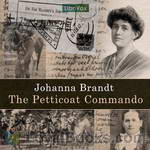 The Petticoat Commando
The Petticoat Commando
In introducing the English version of this book I venture to bespeak a welcome for it, not only for the light which it throws on some little-known incidents of the South African war, but also because of the keen personal interest of the events recorded. It is more than a history. It is a dramatic picture of the hopes and fears, the devotion and bitterness with which some patriotic women in Pretoria watched and, as far as they could, took part in the war which was slowly drawing to its conclusion on the veld outside... | |
By: H. S. Adams (1864-?) | |
|---|---|
 Making a Rock Garden
Making a Rock Garden
A short look at building a rock garden, right from the rocks themselves and how to arrange them, to choosing and placing the plants, touching wall and bog gardens, too. In this little monograph, the author is trying to draw the eyes of U.S. gardeners in to the intimate beauty of this neglected hobby.The original work has a number of attractive and useful photographs and drawings. | |
By: Joe Tilden | |
|---|---|
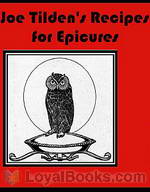 Joe Tilden's Recipes for Epicures
Joe Tilden's Recipes for Epicures
Major Joseph Tilden was in his time one of the most famous Bohemians and epicureans of the Pacific Coast. Ever since his death his many friends have been trying to learn the culinary secrets which made a repast of his devising so delicious. He had given his recipes to but few, and those few his most intimate friends and fellow spirits. One of the most favored of his old companions has given this complete collection of his recipes for publication.San Francisco, May, 1907.(Excerpt from text) | |
By: Maria Edgeworth (1767-1849) | |
|---|---|
 Practical Education, Volume I
Practical Education, Volume I
| |
By: Aiden Wilson Tozer (1897-1963) | |
|---|---|
 The Pursuit of God
The Pursuit of God
"As the heart panteth after the water brooks, so panteth my soul after thee, O God." This thirst for an intimate relationship with God, claims A.W. Tozer, is not for a select few, but should be the experience of every follower of Christ. But, he asserts, it is all too rare when believers have become conditioned by tradition to accept standards of mediocrity, and the church struggles with formality and worldliness. Using examples from Scripture and from the lives of saints who lived with this thirst for God, Tozer sheds light on the path to a closer walk with God. | |
By: Alfred Ayres (1826-1902) | |
|---|---|
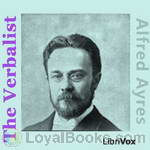 The Verbalist
The Verbalist
Ayres arranges usage problems alphabetically and treats certain areas in greater detail as he sees fit. For example, his first entry is A-AN (articles). His second is ABILITY-CAPACITY, in which he distinguishes between the meanings. The alphabetical arrangement continues through to YOURS. (Introduction by Bill Boerst) | |
By: Bradford Torrey (1843-1912) | |
|---|---|
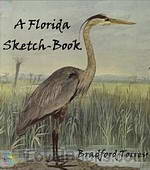 A Florida Sketch-Book
A Florida Sketch-Book
This is a series of late-19th Century essays about Florida’s flora & fauna written by a Massachusetts-based naturalist. | |
By: Hugo Ziemann | |
|---|---|
 The Whitehouse Cookbook (1887) Cooking, Toilet and Household Recipes, Menus, Dinner-Giving
The Whitehouse Cookbook (1887) Cooking, Toilet and Household Recipes, Menus, Dinner-Giving
| |
By: Hannah Trager (1870-1943) | |
|---|---|
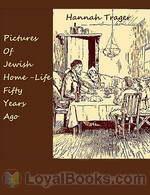 Pictures of Jewish Home-Life Fifty Years Ago
Pictures of Jewish Home-Life Fifty Years Ago
Hannah Trager published Pictures of Jewish Home-Life Fifty Years Ago in 1926, so the book is a portrait of day to day life for a Jewish family in Jerusalem around 1876. In each chapter, Mr. Jacobs reads a letter from his cousins living in Jerusalem many years earlier, each one teaching his family and friends about a different holiday or tradition of their people. (Introduction by wildemoose) | |
By: Clarence Darrow (1857-1938) | |
|---|---|
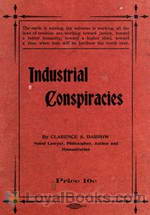 Industrial Conspiracies
Industrial Conspiracies
| |
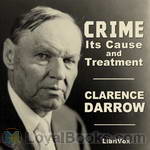 Crime: Its Cause and Treatment
Crime: Its Cause and Treatment
Clarence Darrow was an American lawyer. He remains notable for his wit and agnosticism, which marked him as one of the most famous American lawyers and civil libertarians.In this book, Darrow expands on his lifelong contention that psychological, physical, and environmental influences—not a conscious choice between right and wrong—control human behavior. To my ears (the reader's), the author has a rather simplistic behaviourist view of human behaviour, but he argues his position with wonderful clarity... | |
By: John R. Lynch (1847-1939) | |
|---|---|
 The Facts of Reconstruction
The Facts of Reconstruction
After the American Civil War, John R. Lynch, who had been a slave in Mississippi, began his political career in 1869 by first becoming Justice of the Peace, and then Mississippi State Representative. He was only 26 when he was elected to the US Congress in 1873. There, he continued to be an activist, introducing many bills and arguing on their behalf. Perhaps his greatest effort was in the long debate supporting the Civil Rights Act of 1875 to ban discrimination in public accommodations.In 1884 Lynch was the first African American nominated after a moving speech by Theodore Roosevelt to the position of Temporary Chairman of the Republican National Convention in Chicago, Illinois... | |
By: Orison Swett Marden (1850-1924) | |
|---|---|
 How to Succeed
How to Succeed
In this volume, Orison Swett Marden explains the road to success in simple terms for the benefit of anyone, who wishes to follow in his footsteps. Over 100 years after publication, most of these lessons are still valid today. | |
By: Mary Hunter Austin (1868-1934) | |
|---|---|
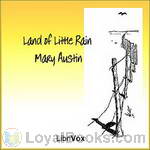 The Land of Little Rain
The Land of Little Rain
The Land of Little Rain is a book of sketches which portray the high desert country of southern California, where the Sierras descend into the Mojave Desert. Mary Austin finds beauty in the harsh landscape: "This is the sense of the desert hills--that there is room enough and time enough. . . The treeless spaces uncramp the soul." Her story begins with the water trails that lead toward the few life giving springs--the way marked for men by ancient Indian pictographs. Life and death play out at these springs... | |
By: Jacob Stroyer (1849-1908) | |
|---|---|
 My Life in the South
My Life in the South
My Life in the South is the vivid and touching autobiography of African-American former slave, Jacob Stroyer. It recounts experiences from his early childhood on the planation up to his involvement in the Confederacy's war effort and eventually his experience of becoming a free man. | |
By: William Wells Brown (1814?-1884) | |
|---|---|
 Three Years In Europe
Three Years In Europe
William Wells Brown was born a slave, near Lexington, Kentucky. His mother, Elizabeth, was a slave--his father a white man who never acknowledged his paternity. Brown escaped slavery at about the age of 20. For many years he worked as a steamboatman and as a conductor for the Underground Railroad in Buffalo, New York. In 1843, he became a lecturer for the Western New York Anti-Slavery Society, and was a contemporary of Frederick Douglass.Brown went to Europe in 1849 to encourage British support for the anti-slavery movement in the United States... | |
By: Gustav Kobbé (1857-1918) | |
|---|---|
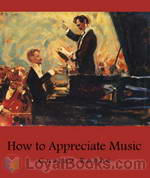 How to Appreciate Music
How to Appreciate Music
Originally published in 1906, this book is essentially a how to guide on music appreciation. Includes sections on the pianoforte, orchestral, and vocal music. Good for anyone who wishes for a greater appreciation of the wonders of music. | |
By: George Dunderdale (1822-1903) | |
|---|---|
 The Book of the Bush
The Book of the Bush
While the world was young, nations could be founded peaceably. There was plenty of unoccupied country, and when two neighbouring patriarchs found their flocks were becoming too numerous for the pasture, one said to the other: "Let there be no quarrel, I pray, between thee and me; the whole earth is between us, and the land is watered as the garden of Paradise. If thou wilt go to the east, I will go to the west; or if thou wilt go to the west, I will go to the east." So they parted in peace.(excerpt from book) | |
By: William Henry Holmes (1846-1933) | |
|---|---|
 A Study Of The Textile Art In Its Relation To The Development Of Form And Ornament
A Study Of The Textile Art In Its Relation To The Development Of Form And Ornament
| |
By: Edith E. Wiggin | |
|---|---|
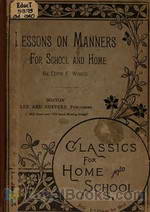 Lessons on Manners for Home and School Use
Lessons on Manners for Home and School Use
It is true that good manners, like good morals, are best taught by the teacher's example. It is also true that definite lessons, in which the subject can be considered in its appropriate divisions, are of no little value if we would have our children attain to "that finest of the fine arts, a beautiful behavior." (From the author's Introduction) | |
By: C. Houston (Charles Houston) Goudiss (1880-) | |
|---|---|
 Foods That Will Win The War And How To Cook Them (1918)
Foods That Will Win The War And How To Cook Them (1918)
| |
By: Willis J. Abbot (1863-1934) | |
|---|---|
 Aircraft and Submarines
Aircraft and Submarines
"Aircraft and Submarines" is a history of the development of these forms of transportation and their ultimate use in warfare. Also a brief history of submarine use in commercial applications. A thoroughly enjoyable piece for anyone interested in the detailed development of these modes of transportation. | |
 American Merchant Ships and Sailors
American Merchant Ships and Sailors
| |
 The Naval History of the United States Volume 1
The Naval History of the United States Volume 1
| |